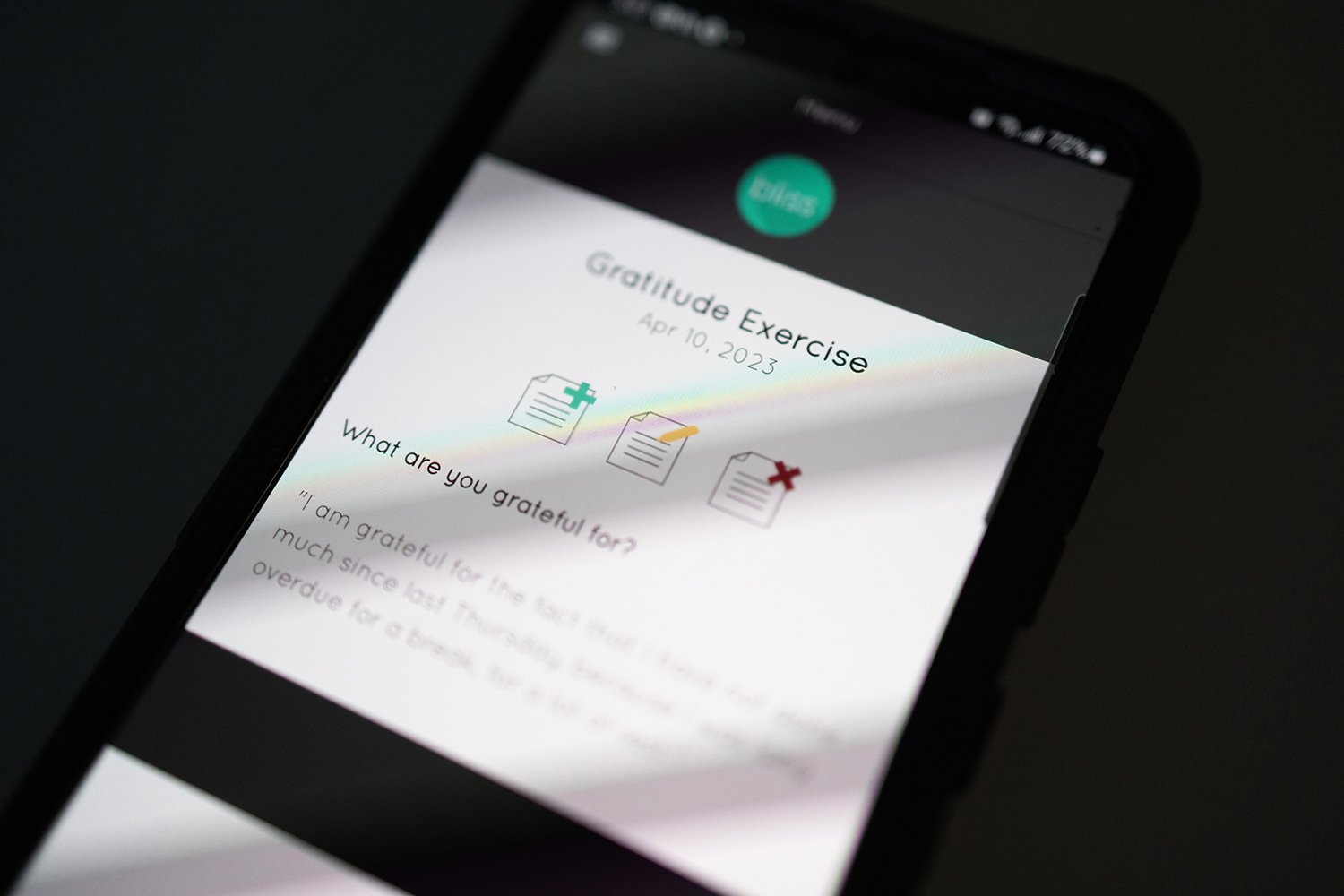Journaling For The Cultivation of Gratitude
A Nota Journal, Location: Toronto, Ontario, Canada, Year: 2023, Photographer: Ajani Charles
If left to my own devices, and when different forms of stress lead me to forget much of what I have learned about embodying a positive mindset, I can lack gratitude for the overabundance of blessings in my life.
When lacking in self-awareness and given that I have seen and experienced some of the worst that humanity has to offer, I can often default to the negativity bias that humans are hardwired to possess, especially those of us who experience unprocessed childhood traumas and other traumas.
Negativity bias is a cognitive bias that leads the human mind to give more conscious and unconscious weight and attention to negative experiences, thoughts, and emotions than positive ones.
As such, people may remember adverse events more vividly, reacting more strongly to negative stimuli while being more affected by negative feedback.
Throughout human history, it was often far more critical for survival to detect and respond appropriately or disproportionately to threats and dangers than to focus on positive experiences.
Such a bias towards negativity allowed our hunter-gatherer ancestors to be more alert to potential dangers and to take steps to protect themselves and their communities.
A Nota Journal, Location: Toronto, Ontario, Canada, Year: 2023, Photographer: Ajani Charles
With the prevalence and rapid pace of digital media and artificial intelligence, negative information can be more salient and attention-grabbing than positive information.
Negative headlines, soundbites, and videos can often be more memorable and more likely to be shared online and elsewhere.
This can lead to a cycle where negative news and events receive more coverage than they warrant, creating a skewed perception of the world and increasing anxiety and stress among individuals and groups.
Journaling, specifically journaling to cultivate gratitude, leads me to see how lucky and privileged I am, especially to be me, to have my family, to have the skills I possess, to live in the historical period that I live in, and more.
I have not missed a day of journaling since September 2014. Journaling is a non-negotiable daily habit, and thankfully, journaling has drastically improved my writing and thinking capacities.
When I first began journaling daily, I had one practice: bullet journaling.
A Nota Journal, Location: Toronto, Ontario, Canada, Year: 2023, Photographer: Ajani Charles
In my case, bullet journaling involves concise entries using bullet points.
This technique allows for the easy and efficient recording of thoughts, feelings, and ideas in a structured and organized manner.
Moreover, bullet journaling is based on my stream of consciousness at the time, such that I write down my continuous flow of thoughts and feelings in the present moment. Sometimes I list the topics I want to bullet journal about before starting the process.
Between 2014 and 2018, I spent at least two hours per day bullet journaling, and each of my bullet journaling sessions would end with a gratitude practice.
Most of my journaling takes place digitally for convenience, and I engage in at least five journaling practices daily. Most of them take less than five minutes to complete.
Beyond bullet journaling, some useful journaling apps that focus on gratitude include but are not limited to Gratitude: Self-Care Journal, Presently: A Gratitude Journal, and Happyfeed: Gratitude Journal. Encrypted Google Docs can also be used for gratitude journaling and other forms of journaling
A Nota Journal, Location: Toronto, Ontario, Canada, Year: 2023, Photographer: Ajani Charles
Since 2014, I have found that no matter how much malice I witness or am subject to, and no matter what happens to me, my loved ones, my communities, and the world, I can always find something to be grateful for.
Recently, this was most notable during the COVID-19 lockdowns in Toronto (and elsewhere). Things were terrible, and often the smallest piece of gratitude helped me immensely.
Before COVID-19, when one of my aunts was dying of cancer, she began to lose the ability to do seemingly simple things that most of us, including myself, can take for granted, like being able to walk, being able to bathe unassisted, being able to turn over in a bed unassisted, being able to use the washroom alone, and so on.
When my mentor Scott Day died from various health complications, I found gratitude because I could say goodbye to him through a lengthy letter before his death. I was able to thank him for the many lessons and skills that he taught me, lessons and skills that I benefit from to this day.
Hours after I was about a hundred meters away from and oblivious to the North York van attack in Toronto, which remains the most publicized act of terrorism in Toronto’s history, I was able to find gratitude for my good fortune, my health and well-being, and for my slightly late arrival to my dentist appointment about an hour before the attack began.
Had I arrived at my dentist’s any other time, I might not be alive to write this article, as I could have been walking down one of the blocks wherein the attacker took many innocent lives.
A Nota Journal, Location: Toronto, Ontario, Canada, Year: 2023, Photographer: Ajani Charles
The same can be said about my experiences of surviving potentially fatal street fights and being near shootings and stabbings in Canada and elsewhere when I was much younger.
When my friend Faraz died in a car accident, I found gratitude for the fact that I was friends with him in the first place and for the unique yet simple things that he taught me since we met in the ninth grade at Earl Haig Second Secondary School.
Furthermore, almost nothing leads to gratitude for one’s life more than knowing that life as we know it will inevitably end.
I think of Faraz every time I do burpees, as he was the first person I did burpees with when we were on our high school’s rugby team together. I am grateful I have not stopped working out in various ways since grade nine, physically, psychologically, and otherwise.
I have found gratitude for those who have harmed me, intentionally or unintentionally. Those who have betrayed or significantly disappointed me have inspired me to find better friends and colleagues that align with my current goals and values while digging deep to define my goals and values in the first place. I have found appreciation for the lessons learned by disappointing myself.
My career has been arduous, and the most creative, reflective, and fulfilling career paths are the most challenging. Yet, I am grateful for the professional path I have chosen; it has taught me the most important lessons of my life.
A Nota Journal, Location: Toronto, Ontario, Canada, Year: 2023, Photographer: Ajani Charles
The practices below remind me that infinite gratitude is always available to me.
Three Things
Three Things is a gratitude journaling practice I learned about in 2014. I began engaging in the practice days after I found out about it.
It involves writing down three things that one is grateful for every day.
For me, Three Things did not go further than that until 2017 when I realized that tremendous gratitude could be experienced if I thought about and wrote about why I was grateful for each of the three things I listed daily.
For example, there are some key differences and a gap in profundity between stating, “I am grateful to have healthy food in my fridge” and “I am grateful to have healthy food in my fridge because such food nourishes my body, contributes to my health and wellbeing, millions or billions of people around the world suffer from malnutrition and do not have the means to access such food, and fate could have led me to experience far more nutritional poverty and other forms of poverty.”
It Could Be Worse
It Could Be Worse is a journaling practice I began approximately two years ago.
A Nota Journal, Location: Toronto, Ontario, Canada, Year: 2023, Photographer: Ajani Charles
It helps me to find gratitude by contemplating how my life could be exponentially worse than it is, thereby allowing me to see my good fortune, despite the aspects of life that may lead me to experience anger, discontent, disappointment, and so on.
For example, “My life could be much worse, as I could be unhoused like the more than 8,500 Torontonians that currently lack housing.”
I believe this exercise is one of the most impactful ways to elicit gratitude, as things can always be much worse, no matter what one is presently experiencing.
A person given a six-month life expectancy by a physician could have been given a six-day life expectancy.
An individual with a broken leg could have broken both of their legs.
Many people worldwide are infuriated by the fact that they have missed a flight or many flights today. However, they don't consider that they may be avoiding a catastrophe by missing their flights. My mother once missed a flight in Haiti that resulted in a plane crash and the death of all the plane’s passengers.
The Bliss App, Location: Toronto, Ontario, Canada, Year: 2023, Photographer: Ajani Charles
Honouring People
Honouring People is one of the most challenging gratitude journaling practices, and I engage in it often.
My version of it involves writing down the good qualities that a person who has harmed one possesses, and it reminds me that human beings are, or can be, heroes and villains simultaneously.
For example, “I am grateful for Ben because his bravery as an entrepreneur is motivating, despite our differences.”
I Get To
When we experience discontent, anger, or resentment about a particular task, job, responsibility, or obligation, we often tell ourselves and others that we “have to” engage in such activities.
“I have to” suggests that an activity is something one is forced to do, as in, “I have to do laundry.”
“I have to” frames one as a victim.
The Bliss App, Location: Toronto, Ontario, Canada, Year: 2023, Photographer: Ajani Charles
Alternatively, “I get to” (or “I want to”) is something one is excited about doing and is grateful for. “I get to” is empowering. “I get to” is a thoughtful decision.
“I get to do laundry” is far more profound than “I have to do laundry,” as many people worldwide do not have laundry detergent, adequate clothing, electricity, or the capacity to do laundry by hand or otherwise.
Many people worldwide are physically incapable of doing laundry, and “I get to do laundry” acknowledges our good fortune.
My Life Is Valuable
Advertising, marketing, public relations, and our social media use can often lead us to believe that our lives are not valuable or lack value in at least a handful of areas.
In most major, Western cities, especially in North America, we lack the communities and family systems that we are hardwired to lean on for meaning and acceptance, which amplifies the fallacy of life’s meaninglessness.
Moreover, life in many parts of the world can be stressful and confusing, especially for those at the bottom of the socioeconomic ladder. And the advent of new forms of artificial intelligence is leading significant portions of the human population to question their role in society and the value they bring to humanity.
My Life Is Valuable is a gratitude journaling practice I developed last year to challenge the feelings and thoughts associated with nihilism and depression.
I began the practice a day or two after Chara Ho, a talented photographer, filmmaker, and designer, and one of my super-talented Canon FUTURES program mentees gave me the gift of a beautiful Nota (by Indigo) journal last summer.
Chara’s gift surprised and humbled me because I met with her to answer her questions about living and working as an artist, and I brought her a couple of books as gifts. I was not expecting to get anything from her, and I was happy to share some practical information that I wish someone had shared with me ten, fifteen, or twenty years ago.
The journal that she gave me is the only physical journal that I use, and every day I use it to complete the sentence My Life Is Valuable. For example, “My life is valuable because I am a teacher, and sharing what I know, do not know, and how I lacked (or still lack) in foresight, wisdom, and knowledge helps others to find meaning in their lives.”
Much of the research on gratitude in the twenty-first century has been conducted by psychologists Dr. Robert A. Emmons of the University of California, Davis, and Dr. Michael E. McCullough of the University of Miami.
One of their studies asked all participants to write a few sentences each week that focused on particular topics.
One group wrote about things they were grateful for during the week; they focused on gratitude for recent occurrences.
A second group wrote about irritations or things that had displeased or angered them daily, and a third group wrote about events that had affected them from a neutral perspective.
After ten weeks, the participants that focused on gratitude were more optimistic and felt better about their lives than they did at the beginning of the study.
Surprisingly, they also had fewer visits to general practitioners and other physicians and exercised more than those that focused on the seemingly negative aspects of their lives.
Gratitude saves lives and changes them for the better; I am living proof, and writing this article improved my mood significantly, which I am grateful for.
References









